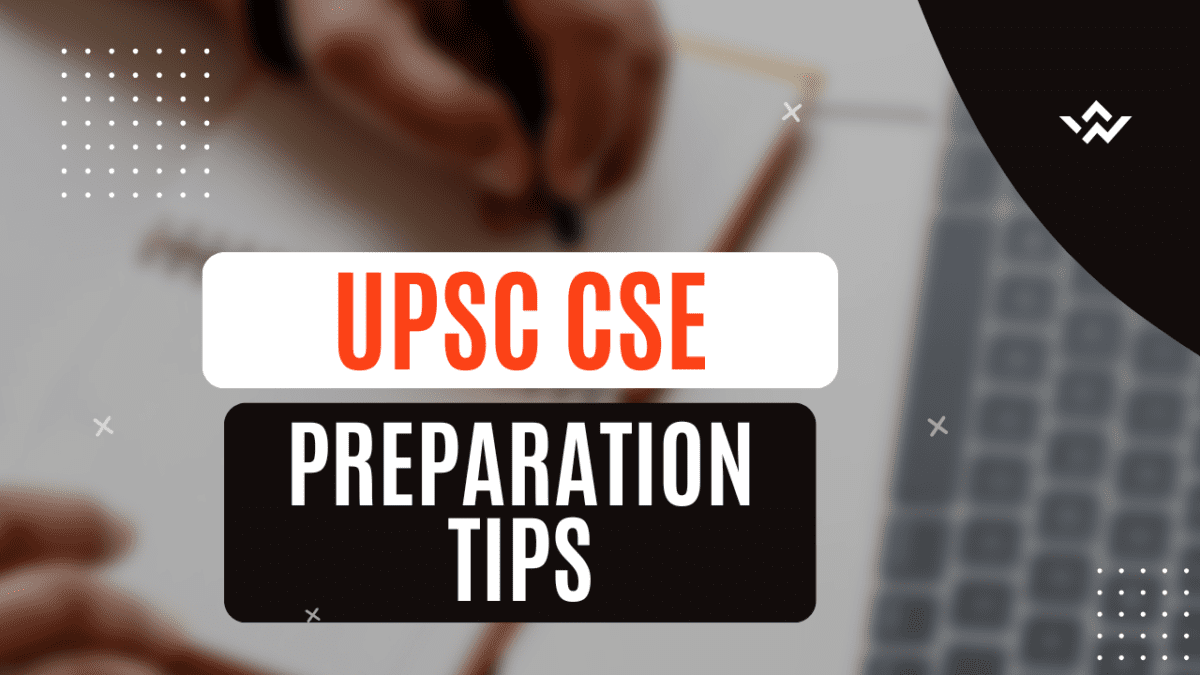UPSC Preparation – Preparing for the UPSC Civil Services Examination is a journey unlike any other. Known as one of the toughest exams in India, it is the gateway to prestigious services like IAS, IPS, and IFS. Success in this exam requires not just hard work but also smart strategies, consistent effort, and an unwavering determination to achieve your dreams. This article will guide you through every step of your preparation journey, ensuring that you are well-equipped to tackle this formidable challenge.
Understanding the UPSC CSE Exam Structure
The UPSC CSE comprises three rigorous stages:
Preliminary Examination (Prelims)
- Objective Nature: Consists of two papers: General Studies Paper I (GS-I) and Civil Services Aptitude Test (CSAT).
- Purpose: A screening test to qualify for the Mains exam.
- Marks: GS-I carries 200 marks, and CSAT is qualifying with 33% required.
Main Examination (Mains)
- Descriptive Nature: Consists of nine papers, including essay writing, general studies, and an optional subject.
- Purpose: Tests the candidate’s in-depth knowledge and analytical skills.
- Marks: Total marks are 1750, with each paper contributing significantly.
Personality Test (Interview)
- Purpose: Evaluates the candidate’s personality, decision-making ability, and ethical values.
- Marks: 275 marks are awarded for the interview.
Related Article – UPSC Syllabus
Creating a Study Plan for UPSC Preparation
A well-structured study plan is the cornerstone of UPSC preparation.
Time Management
- Daily Schedule: Allocate 8-10 hours of study with breaks to maintain focus.
- Long-Term Goals: Set targets for completing the syllabus within 8-10 months.
- Short-Term Goals: Weekly and monthly plans for topic completion.
Prioritizing Subjects
- Begin with high-weightage topics like Indian Polity, History, and Environment.
- Focus on overlapping areas for Prelims and Mains, such as Current Affairs and GS topics.
Setting Realistic Goals
- Divide preparation into manageable chunks.
- Track progress weekly and adjust plans as needed.
UPSC Civil Services Subject-Wise Preparation Strategy
UPSC CSE General Studies (GS) Papers
GS-I: Focus on Indian History, Art & Culture, Geography, and Society.
- Study Resources & Books: NCERT Books, India’s Struggle for Independence by Bipan Chandra, and World Geography by Majid Husain.
GS-II: Covers Polity, Governance, and International Relations.
- Study Resources & Books: Indian Polity by Laxmikanth, Introduction to the Constitution of India by D.D. Basu.
GS-III: Focuses on Economy, Environment, and Security.
- Study Resources & Books: Economic Survey, Environment by Shankar IAS.
GS-IV: Ethics, Integrity, and Aptitude.
- Study Resources & Books: Ethics case studies and standard textbooks like Ethics, Integrity & Aptitude by Subba Rao and P.N. Roy Chowdhury.
Essay Writing in UPSC CSE
- Practice writing essays on diverse topics weekly.
- Focus on clarity, structure, and argumentation.
UPSC CSE Optional Subjects
- Choose an optional subject based on interest, background, and availability of resources.
- Recommended books and coaching material are crucial for scoring well.
The Importance of Current Affairs In UPSC
Best Sources for Current Affairs Preparation for UPSC Civil Services
- Newspapers: The Hindu or Indian Express for daily updates.
- Magazines: Yojana, Kurukshetra, and Economic and Political Weekly.
- Web Portals: Government sites like PIB and PRS.
Notes-Making Techniques
- Write concise notes focusing on facts and analysis.
- Use mind maps and flowcharts for better retention.
Enhancing Answer-Writing Skills
Structuring Your Answers
- Start with an introduction.
- Use bullet points for clarity.
- Conclude with balanced perspectives or solutions.
Practice and Feedback
- Join test series for expert feedback.
- Analyze mistakes and improve continuously.
UPSC CSE Mock Tests and Revisions
Importance of Mock Tests
- Simulate exam conditions to improve time management.
- Identify weak areas and refine strategies.
How to Revise Effectively
- Follow the 3-R Rule: Read, Revise, and Recall.
- Use consolidated notes for quick revisions.
Maintaining Physical and Mental Well-being
Stress Management
- Practice mindfulness and meditation.
- Take regular breaks to recharge.
Healthy Lifestyle Tips
- Maintain a balanced diet.
- Exercise daily to stay physically fit.
Common Mistakes to Avoid while Preparing for UPSC
Pitfalls in Preparation
- Relying on too many resources.
- Ignoring answer-writing practice.
How to Stay Consistent
- Stay motivated by setting achievable milestones.
- Avoid burnout by pacing your studies.
Success Stories and Inspiration
Lessons from Toppers
- Toppers like Tina Dabi and Anudeep Durishetty emphasize consistent revision and smart work.
Motivation to Keep Going
- Remember your ultimate goal of serving the nation.
- Celebrate small achievements to stay motivated.
Conclusion
Preparing for the UPSC Civil Services Examination is a journey of discipline, perseverance, and strategy. By understanding the exam pattern, following a well-planned strategy, and maintaining consistency, you can enhance your chances of success. While the path may seem challenging, the rewards of contributing to nation-building and personal growth are unparalleled. Keep pushing your limits, and remember that with determination and the right approach, cracking the UPSC exam is within your reach.




